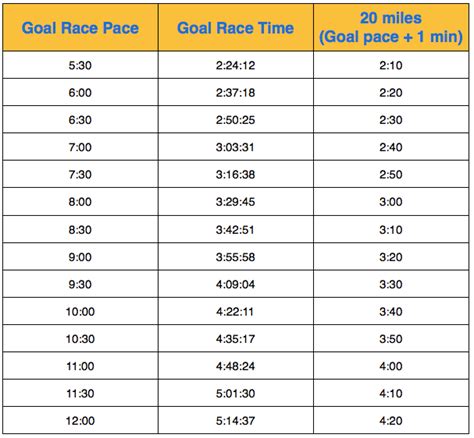How Long to Run 20 Miles? Your Personalized Pace Guide
Running 20 miles is a significant achievement, a testament to dedication and training. Whether you're preparing for an ultramarathon, aiming for a personal best in a half-marathon, or simply challenging yourself, knowing how long it should take you is crucial for pacing, training, and avoiding injury. This isn't a one-size-fits-all answer; your 20-mile time depends heavily on your experience, training, and current fitness level. This guide will help you determine a personalized pace and time.
Factors Influencing Your 20-Mile Time
Several key factors influence how long it takes to run 20 miles:
- Current Fitness Level: Are you a seasoned marathoner or a relatively new runner? Your current running ability significantly impacts your pace.
- Training Plan: A structured training plan tailored to your goals is essential. Consistent training builds endurance and improves your pace. Have you been specifically training for long distances?
- Terrain: Flat, paved surfaces are faster than hilly or trail running. Consider the elevation changes and surface type of your intended 20-mile run.
- Weather Conditions: Extreme heat, cold, wind, or rain can all affect your pace and performance.
- Nutrition and Hydration: Proper fueling and hydration are critical for long runs. Dehydration or inadequate energy can significantly slow you down.
- Pacing Strategy: A consistent pace is generally best for longer distances, though some runners may employ a negative split (faster in the second half).
How to Estimate Your 20-Mile Time
There's no magic formula, but here are two common approaches:
1. Extrapolation from Shorter Distances:
This method uses your performance in shorter races to predict your 20-mile time. For example:
-
Half-Marathon Time: If you can run a half-marathon (13.1 miles) in 2 hours, you might estimate a 20-mile time of approximately 3 hours (allowing for a slightly slower pace over the longer distance). This is a rough estimate and doesn't account for factors like terrain or fatigue.
-
10K Time: If you know your 10K time, you can also attempt to extrapolate, though this becomes less reliable due to the larger difference in distance.
2. Using Your Current Average Pace:
Track your average pace during your regular training runs. If you consistently maintain an 8-minute-per-mile pace in your long runs, you can estimate your 20-mile time as follows:
20 miles * 8 minutes/mile = 160 minutes, or 2 hours and 40 minutes.
Remember, this is just an estimate. It's crucial to factor in the potential for fatigue over a longer distance. You might find your pace slows slightly as you approach the end of your 20-mile run.
What if I Can't Run a 20-Mile Continuous Run Yet?
Don't be discouraged! Many runners build up to a 20-mile run through a progressive training plan. This involves gradually increasing your long run distance over weeks or months. Focus on consistency and proper rest to prevent injury. You can also incorporate back-to-back long runs or break your 20-mile run into several shorter segments.
H2: What's a Good Pace for a 20-Mile Run?
There's no single "good" pace. A "good" pace is one you can sustain comfortably without risking injury. This depends entirely on your fitness level and goals. Experienced ultramarathoners might aim for a pace under 8 minutes per mile, while recreational runners might be happy with a pace of 10-12 minutes per mile or even slower.
H2: How Can I Improve My 20-Mile Time?
Improving your 20-mile time requires a dedicated training plan that incorporates:
- Consistent Long Runs: Gradually increasing your long run distance is crucial.
- Speed Work: Incorporate interval training and tempo runs to improve your speed and endurance.
- Strength Training: Strengthening your core and legs helps prevent injuries and improves running efficiency.
- Rest and Recovery: Adequate rest is essential for muscle repair and adaptation.
- Proper Nutrition and Hydration: Fueling your body correctly is critical for performance.
H2: Should I Worry About Hitting My Estimated Time?
While having a target time can be motivating, don't get overly fixated on it. Focus on completing the 20-mile run safely and comfortably. Adjusting your pace as needed is perfectly acceptable, particularly if you're facing challenging conditions. The most important thing is to listen to your body and avoid pushing yourself too hard.
Remember, consistency and a well-structured training plan are key to successfully completing a 20-mile run and achieving your desired time. Consult with a running coach or healthcare professional for personalized guidance and injury prevention. Happy running!

